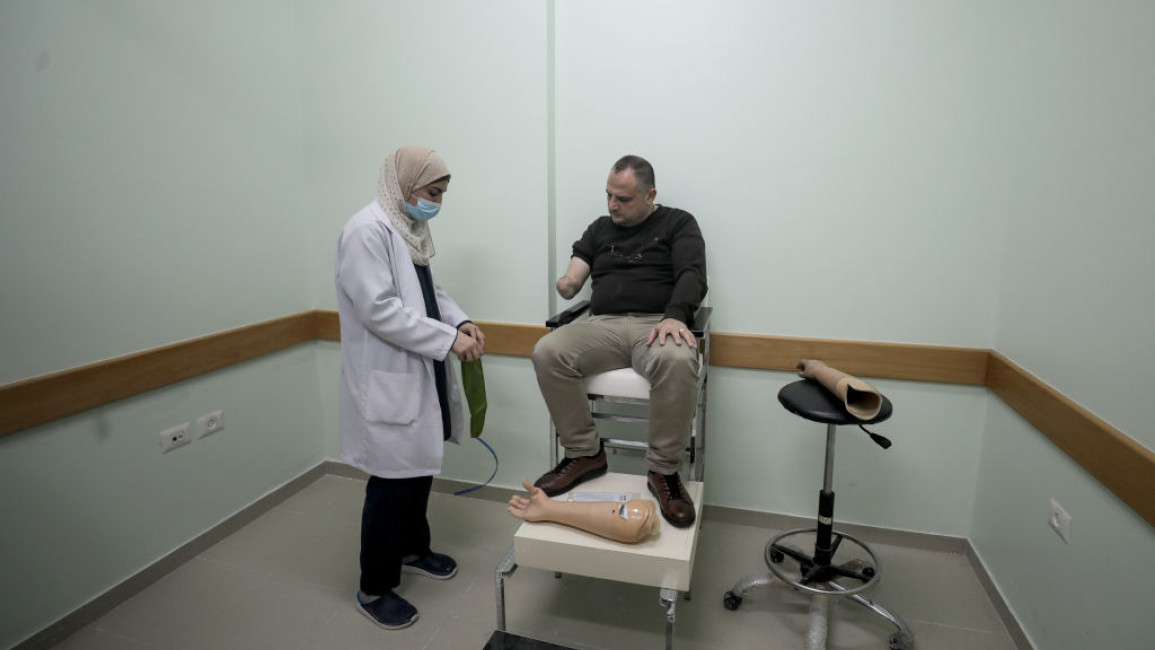Qatar opens specialised hospital for electronic prosthetics in Gaza
Sheikh Hamad Bin Khalifa Al-Thani Hospital for Rehabilitation and Prosthetics in Gaza launched a workshop to provide electronic prosthetics for disabled Palestinians in Gaza on Sunday.
In the presence of Mohammed Al-Emadi, head of the Qatar Committee for the Reconstruction of Gaza, Sultan Al-Asiri, the Qatar Fund for Development's representative, announced during a press conference that the new medical project had completed its first phase of installing electronic prosthetics for patients.
"About 40 Palestinians from the Gaza Strip will benefit from the workshop, out of 60 cases in need of limbs. The medical teams will start working with 20 cases, and then complete the second phase with a further 20 cases after Eid al-Fitr," the Qatari official noted.
"These electronic hands are controlled by the brain, and mimic the work of natural limbs," Al-Asiri said, adding that these types of medical projects "give hope to Gaza's amputee younger generation and children and will restore a level of normality to their lives and ease integration into society."
Fatima al-Nimr, a 31-year-old woman from Gaza, was one of the patients who recently received her electronic prosthetics, after nine years of hardship ever since she had to amputate her left hand due to a severe traffic accident.
"I used to wear a cosmetic prosthetic hand to avoid people's looks over me missing a part of my body....but today I will be able to move my prosthetic hand and hold it everything I want," al-Nimr told The New Arab, and proceed to show how she was moving her prosthetic hand by controlling the nerves.
"I am really happy with this hand. It feels natural and will help me live my life normally, especially since I will be able to hold things with it and use it as if it were a natural hand,” she added.
Mohammed Abed, another patient who benefited from the medical project, expressed his joy over the fact that he had an electronic prosthetic hand after suffering for more than three years.
In 2018, Abed lost his hand while participating in the Great March of Return which took place along the eastern border of Khan Yunis, when an Israeli sniper targeted him at the time.
"After I lost my hand, I felt that I was helpless and unable to continue my life," the 29-year-old man told The New Arab. "I lost my carpentry work and became unemployed and dependent on my family of 10."
"I had to wear a cosmetic prosthetic hand, but it didn't help me. Today, I will be able to use my electronic prosthetic hand,” he added.
Both al-Nimr and Abed said that the installation of such "electronic upper limbs" would spare them the costs of travel and expensive medical treatment outside the Gaza Strip.
According to statistics issued by the Gaza-based Rehabilitation and Social Training Association, a Palestinian civil organization concerned with people with disabilities, there are around 48,000 people estimated to have disabilities involving their extremities currently living in the Gaza Strip, representing about 2.4 per cent of the total local population.



